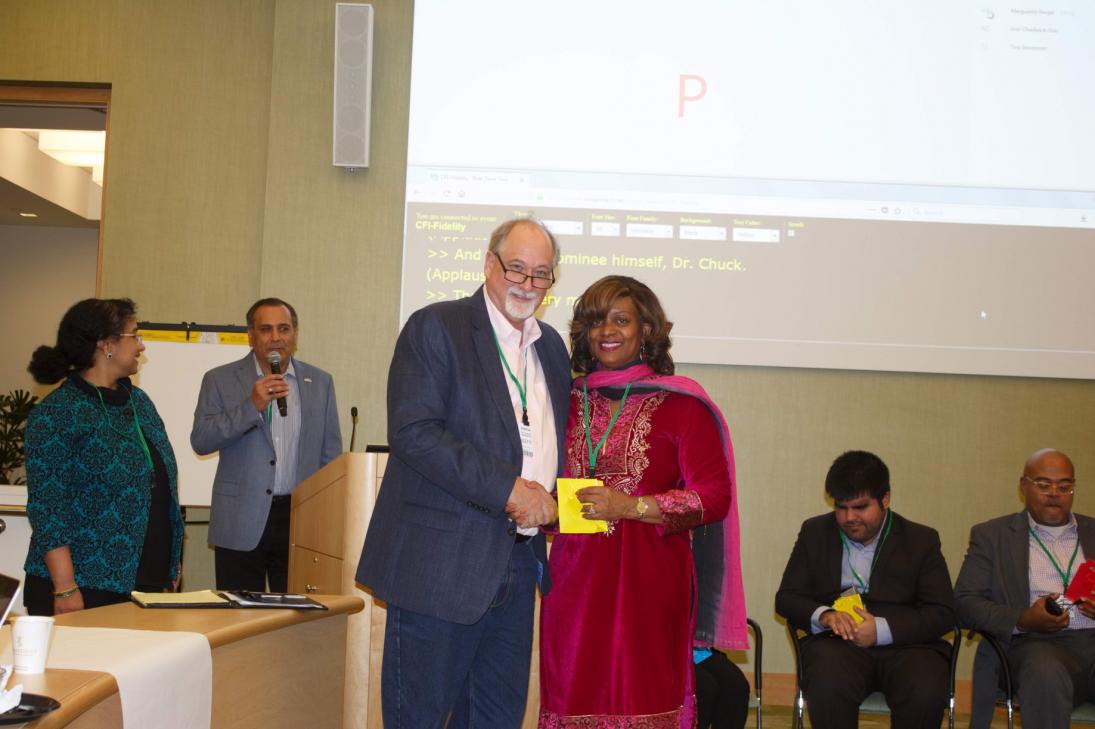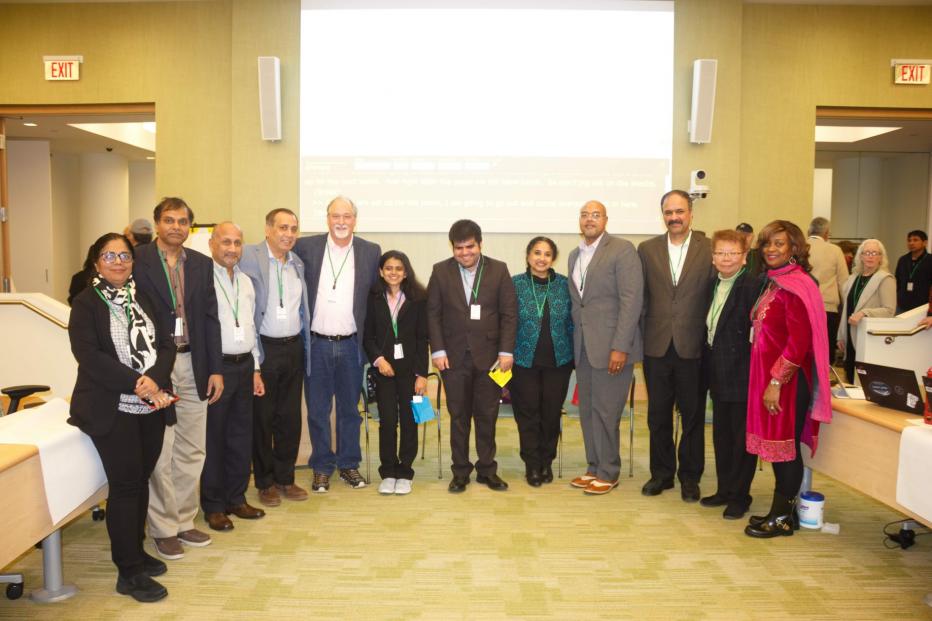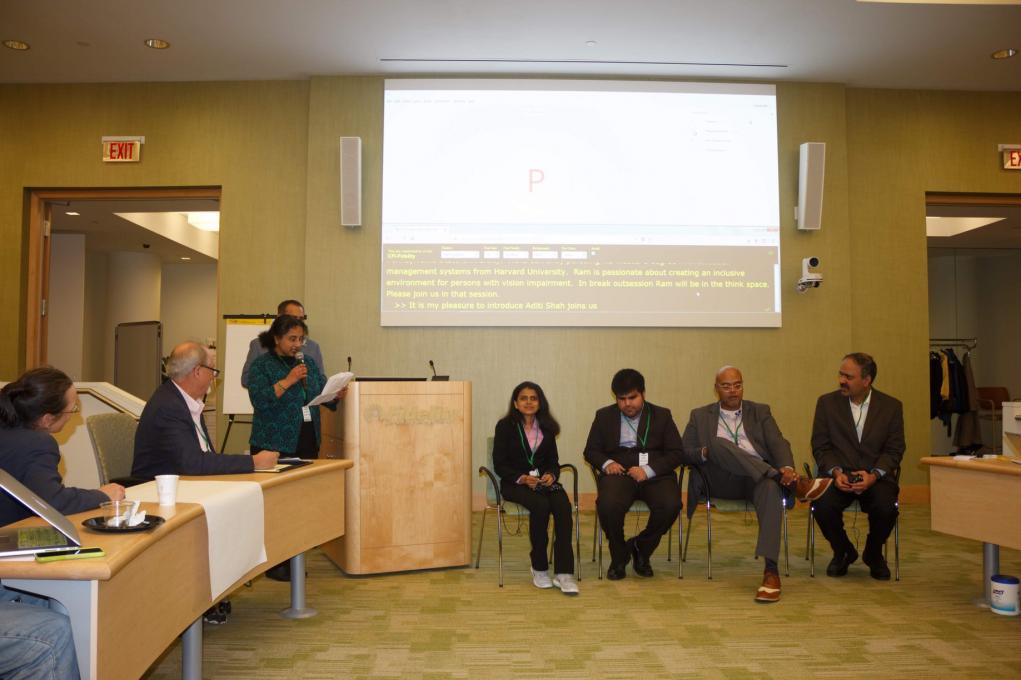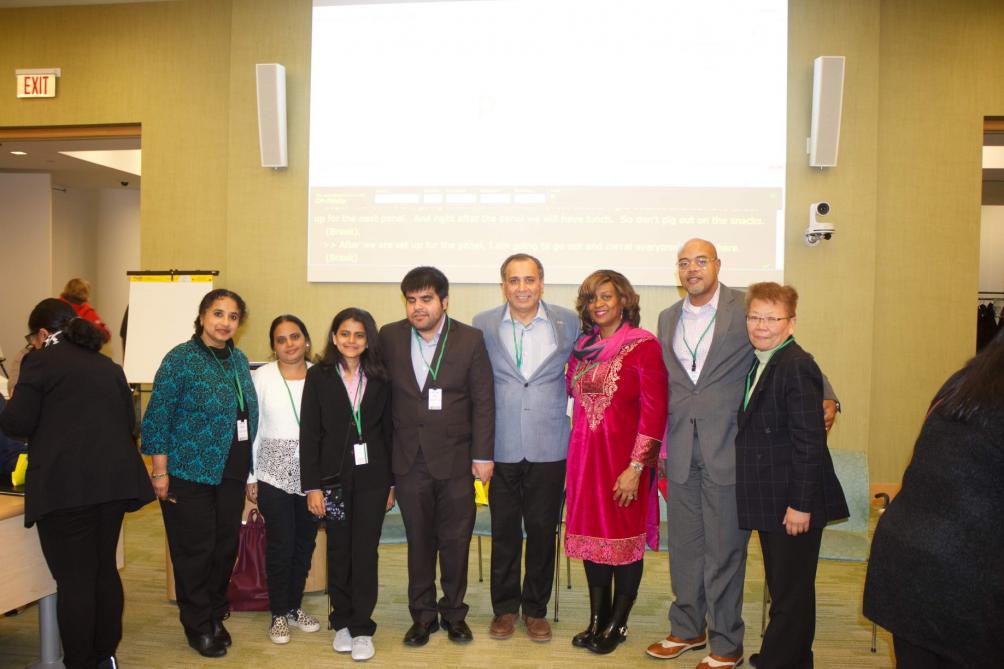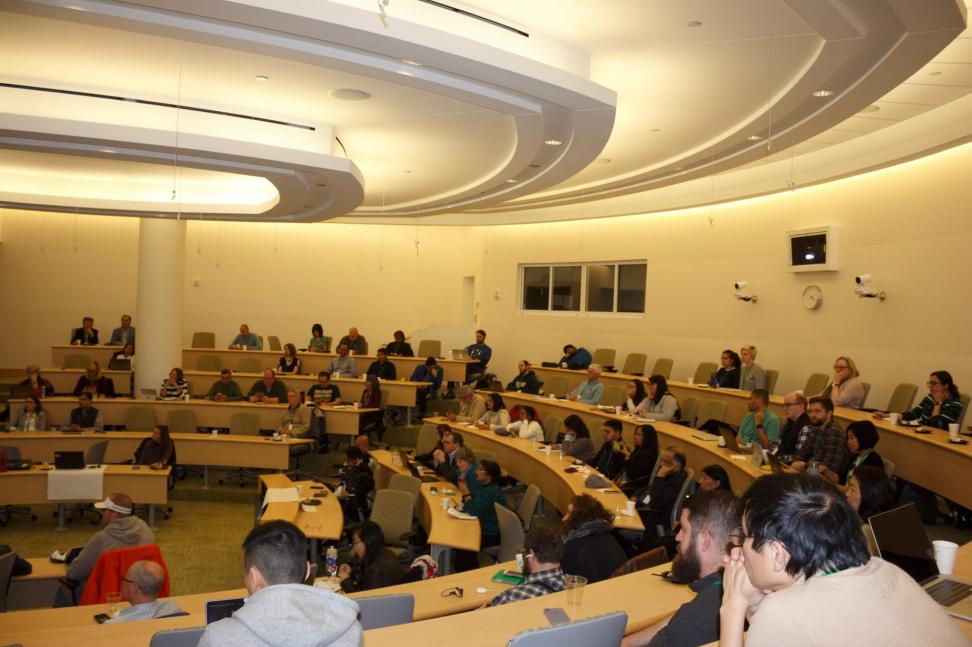Contribute
| Vision-Aid Panel Shines A Light At The Boston Accessibilty Conference |
11/08/2018
The Boston Accessibility Conference was held on Saturday October 27th at the Fidelity Offices in downtown Boston, MA. Vision-Aid co-sponsored the conference and hosted a panel "Making MOOCs more accessible to the visually impaired" and also held an information session on Vision-Aid Inc. The panel was sponsored by Harvard Pilgrim Healthcare . The conference opened with a lively keynote talk “User/Experts: No Substitute for Their Inefficient but Critically Valuable Engagement†by Valerie Fletcher, Executive Director, Institute for Human Centered Design. Valerie discussed the welcome and undeniable tilt toward inclusive design and pointed out that while holistic accessibility is well underway, challenges remain. The digital world leads in this and digital leaders are cutting a path through the woods. Valerie explored how, with direct engagement and a thoughtful application of universal design, we could continue making strides in all realms of accessibility – physical, service and digital. Next, Vision-Aid presented a panel on accessibility challenges in Massive Open Online Courses (MOOCs) which are opening an exciting world of learning for many. While strides have been made in the area of accessibility, barriers remain which can make some of the content in MOOCs inaccessible to persons with disabilities. The panel explored different aspects of this subject. The panel was dynamically led by Dr. Chuck whose energy and enthusiasm were palpable! Dr. Charles Severance (Dr. Chuck) is a legendary Coursera educator from the University of Michigan whose course “Programming for Everyone†taught via Coursera has over 1.6 million students and is used by Vision-Aid to teach programming to its visually impaired students. Dr. Chuck kept the panelists and audience members engaged through a series of lively, rapid-fire questions and thought-provoking talking points. Keith W. Marion, Director of Inclusion at Harvard Pilgrim Health Care spoke eloquently about why making MOOCs accessible is important for not only persons with disabilities but for companies like HPHC which are constantly striving to create an inclusive culture. The benefits from advanced training offered to persons with disabilities with MOOCs can equip them with the skills to succeed in their career aspirations, he said. Kartik Sawhney, a software engineer at Microsoft working on the Cortana team and founder of I-Stem weighed in on the importance and relevance of MOOCs to students pursuing STEM learning and careers. Aditi Shah, currently pursuing her master’s in cyber security at Georgia Institute of Technology outlined some of the challenges she had faced in learning from MOOCs as a visually impaired learner and suggested approaches which can mitigate them. Ram Raju, founder and volunteer executive director of Vision-Aid discussed the role of nonprofits like Vision-Aid and I-Stem in becoming the important links and catalysts between learners and educators on MOOC platforms.During the afternoon session, Ram also presented the Vision-Aid model in a breakout session, which saw a lot of lively interactions and participation from the audience. Brenda Cole from HPHC, presented a token of appreciation to the panelists on behalf of Vision-Aid and HPHC. Overall, the conference was a huge success and helped to shine a light on the important subject of making things accessible for the disabled.
You may also access this article through our web-site http://www.lokvani.com/
